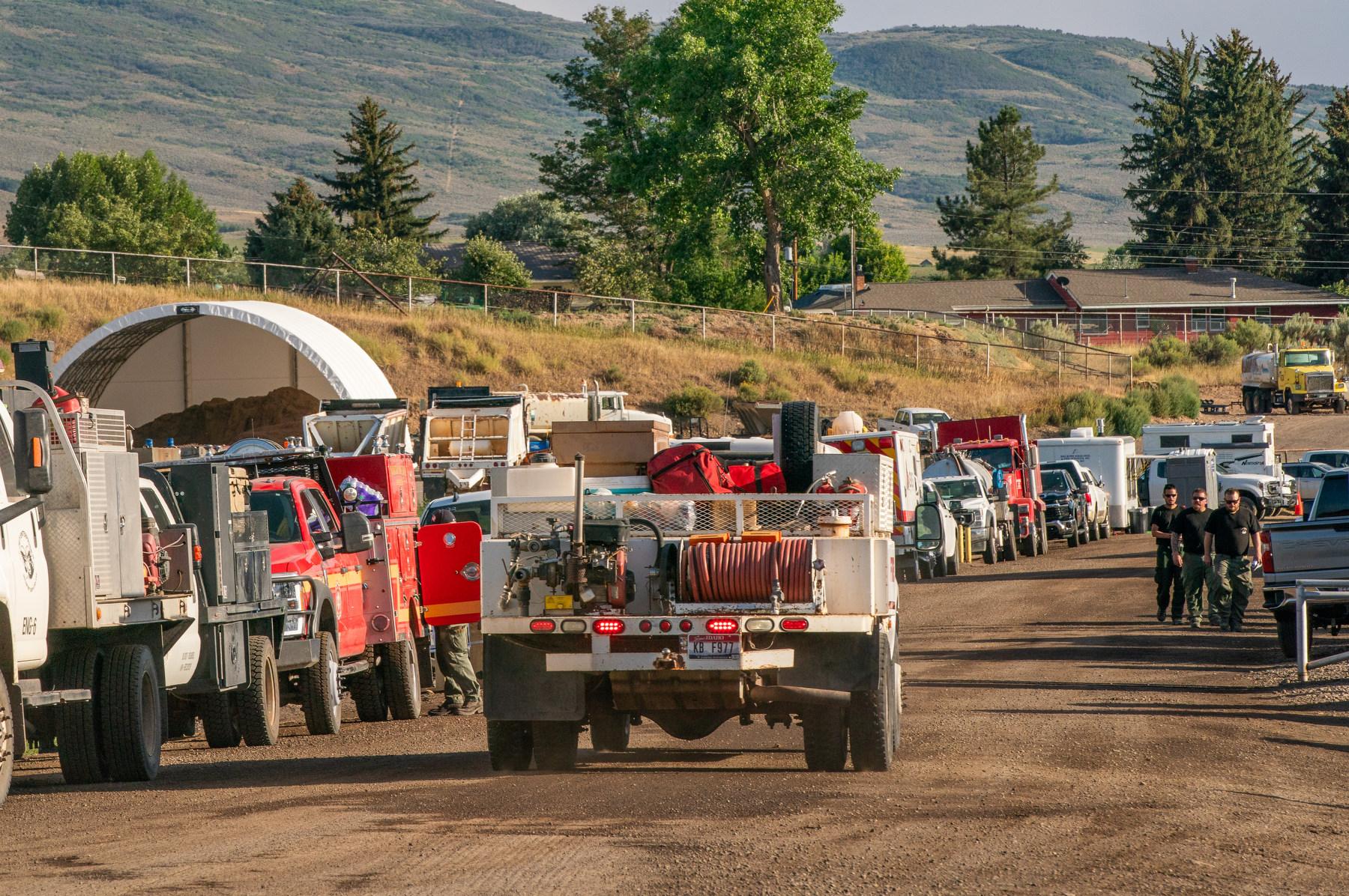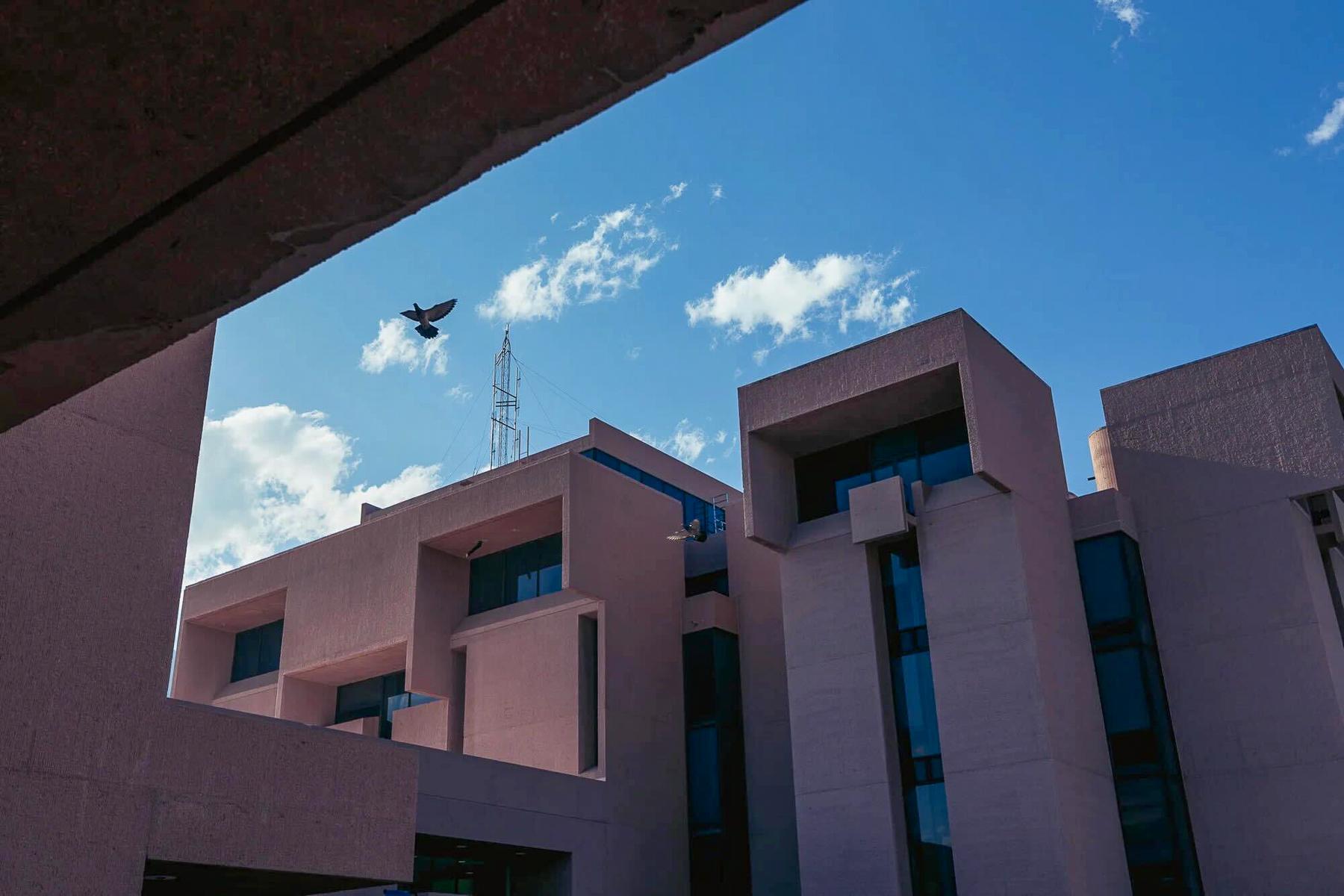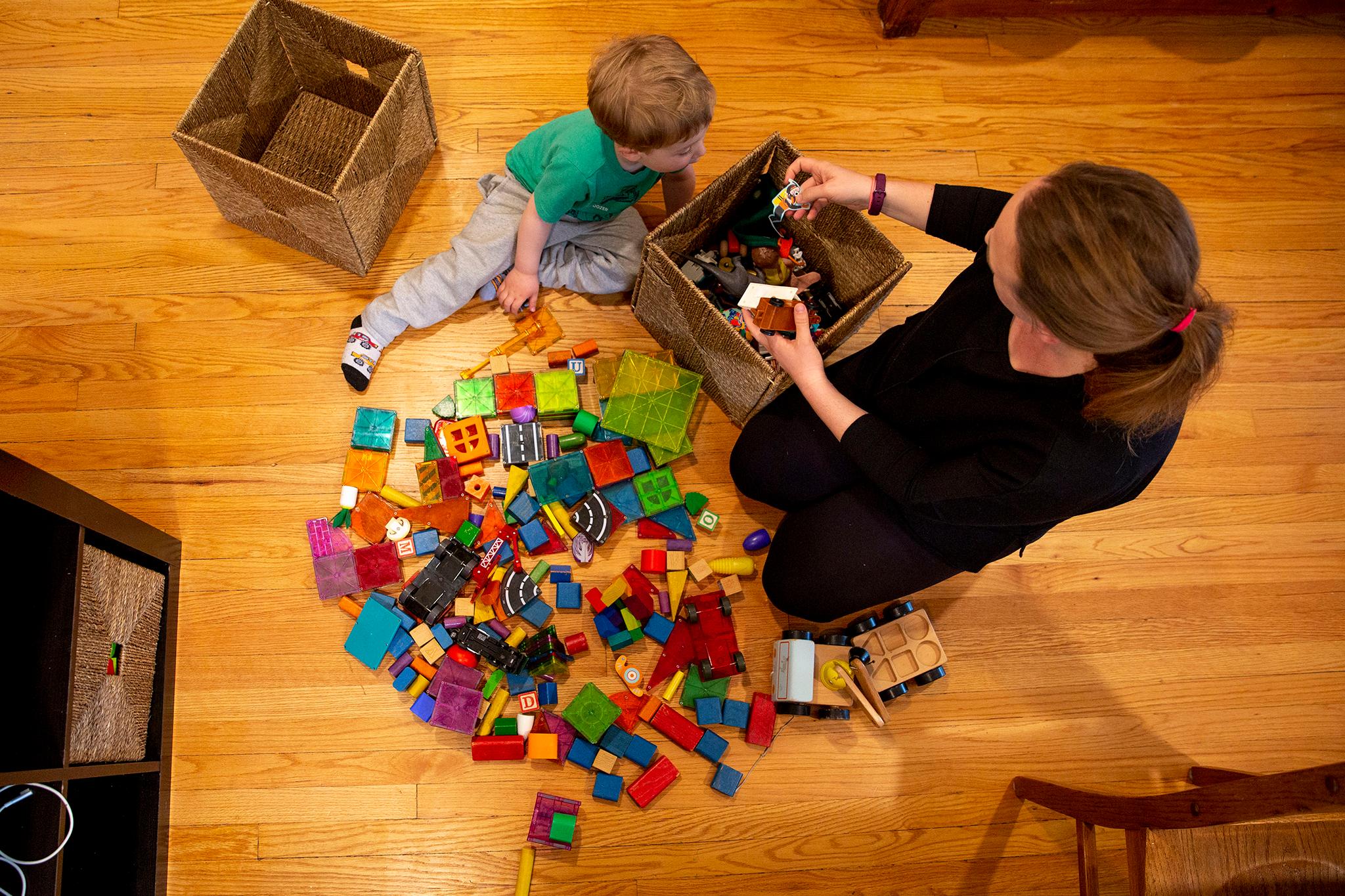
What was it like to have Hunter S. Thompson as a father? Juan Thompson says it’s the question he’s most often asked. To his fans, Hunter Thompson was a groundbreaking writer, the celebrated pioneer of “gonzo” journalism. To his son, he was a remote figure, an addict with a mean streak.
But the love between father and son was always there, even when it wasn’t obvious. Juan Thompson's new memoir about his father and their complicated relationship is called, “Stories I Tell Myself: Growing Up with Hunter S. Thompson.” Thompson spoke with Ryan Warner.
Juan Thompson on growing up in Aspen in the 1970s:
“Aspen was a strange place. You had the old-time conservative rancher and farmer community. And then you had these hippies who had come in from the coasts. It was a real clash of cultures. And you had all these people who were determined not to have mainstream lives, or raise their families in conventional ways. I can’t think of any families that I knew at the time where someone worked a nine-to-five job.”
On his father’s daily routine:
“He would get up around 4 or 5 in the afternoon, have breakfast while I was having dinner. And then, by the time I was going to bed, he was ready to go out and see his friends. It was the middle of the day for him. And then he’d go to bed around 7 or 8 in the morning. So our schedules were almost completely flipped.”
On writing about his youth:
“One of the strangest things to write about the first time I took LSD at 14 with my mom and her boyfriend. Looking back, that’s a very strange thing. And that’s something I would not do with my son. But at the time, in that culture in Aspen, it was not strange. Parents did drugs with their kids. That was not uncommon. Did it harm me? No. But would I advocate it? No.”
On how he came to despise his father:
“He was verbally abusive. He was loud, and he was very insightful about exactly what words to use to cause the most hurt. And it wasn't physical violence. He really was trying to win, to break my mom down. And he did that. And watching him do that was painful. And I just came to really despise him for being so deliberately cruel.”
On guns, and how they helped bring him closer to his father:
“Once my parents got divorced, I had to make an effort to actually spend time with [my dad]. I’d go out there and spend the weekend. And then at one point, he said, ‘Hey, let’s clean some guns. Let me show you how to do this.’ And that evolved into a ritual really, that lasted up until he died. I don’t know that he intended it that way, but it really became this kind of bonding ritual. Whenever I’d come up [to Owl Farm], I’d clean the guns. It wasn't the cleaning of the guns that was so critical, it was the bond that was implied as a result.”
On Hunter S. Thompson’s widow’s plans to open Owl Farm to the public:
“I don’t think Hunter would have wanted that. Did Hunter want to be remembered as a great writer? Absolutely. Would he want people wandering around his home? Absolutely not. The idea of having a museum of some kind is a good one, but I really don’t think Hunter would have appreciated at all the idea of people being in his house.”
Read an excerpt:
In 1982, just before I left for Tufts University in Boston for my freshman year of college, I spent a week with Hunter at Owl Farm, just outside Aspen, where I grew up. It was the first time we had ever spent that much time together, just he and I, and it went surprisingly well. As I was getting ready to leave for the Aspen airport, he gave me the following letter and told me to read it on the plane.
Dear Juan Okay. You’re off. And things seem generally under control— It’s a queer life for sure— but at least it keeps me in shape, Here are three valid $50 checks, which should keep you Also, call me tonight to confirm your safe arrival. Don’t I’ll call Dick + Doris [Goodwin] + Mike Barnicle at the ...... Call your advisor from the Denver airport + say you’ll be late He can. But you’ll have to get serious about it right away. Gall ...... And so much for advice + logistics. I’m not worried about So remember the 44 “Naked + Alone . . .” books. All you ...... I’m glad you came home for a while, + I wish it could have I’ll keep after [Paul] Rubin for the $1000 he owes you for ...... Anyway, I’ll figure on seeing you for Xmas, if not before We still have a ways to go before we can act like good You’re a good person, and I love you for that as much as Or because you’re about to be rich + pay my expenses forever. Let’s stop looking at this college gig as a foolish expense + Love, H.
However, we moved too fast toward a kind of intimacy that we both wished for but which did not yet exist. I took him at his word, plunged in and sent him a letter expressing my loneliness, sadness, homesickness, and depression. It was in this state of mind that I wrote this letter to Hunter, full of disdain for the people around me, a disdain and arrogance born out of loneliness and fear.
Hunter, Yes— naked and alone in Boston. How baffling this is. “I’m Tried calling you tonight—no answer. Play? You’re right about My roommate wears the mask. The other night he took By the way, this newspaper, The Tufts Observer, needs My phone number is: 617 628 2043 Please call anytime. I really enjoyed your letter, thank you, Can I maintain such a claim in the face of such as HE? I’ll Enough! I love you, Dad. Juan
Jesus. What hath Sandy wrought? No college will cure this problem— only postpone it, for That would pay the mortgage on the Owl Farm. I have already paid $5000. Another $1000 due on Oct. 1st. Can Sandy take me back to court if I don’t pay? So what? He’ll be in the Village by then.
Hunter wrote that their friendship petered out after a few get-togethers, not because of Hunter’s hostility to gays, but because they now had different interests and social circles. He finished the letter with this:
That first letter from Hunter was beautiful wishful thinking. He wanted to believe we had that kind of relationship, as did I. We wanted to believe we could start over from that moment and he could be the father he and I both wanted him to be. My letters to him exploded that illusion, and now I see he had no idea how to handle this kind of appeal from me. He could give practical advice; if I had asked him for help getting a job, getting a car, getting an interview for an article in the student paper, that he could have handled. But a cry of loneliness in the darkness, that Reprinted from "Stories I Tell Myself: Growing Up with Hunter S. Thompson," by Juan F. Thompson with permission of Alfred A. Knopf. Copyright (c) Juan F. Thompson, 2016. |








